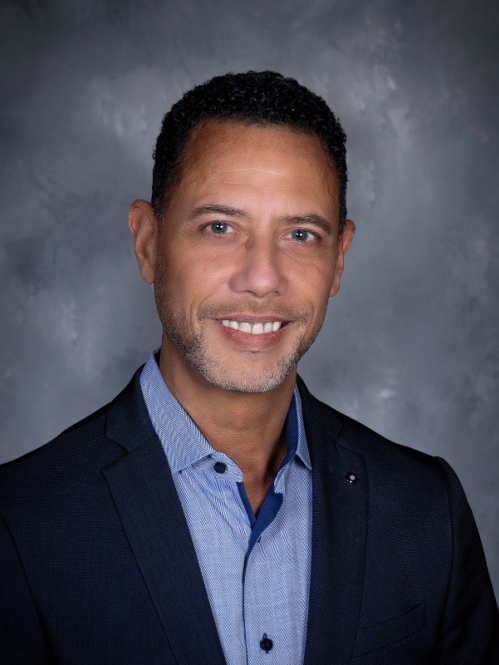David Troutt
Distinguished Professor of Law
David Dante Troutt is the founding director of the Rutgers Center on Law, Inequality and Metropolitan Equity (CLiME) and teaches and writes about race, class and legal structure; intellectual property; torts and critical legal theory. He is an author of non-fiction and fiction books, scholarly articles and legal and political commentary and a sought-after public speaker.

Biography
David Dante Troutt is Distinguished Professor of Law and Derrick A. Bell Scholar at Rutgers Law School-Newark where he also founded and directs the Center on Law, Inequality and Metropolitan Equity (CLiME). He emphasizes using law and interdisciplinary study in order to understand structural inequality and to formulate legal and policy reform strategies. Troutt teaches tort law, business torts/intellectual property, civil rights and a multidisciplinary approach to racial and economic inequality (land use, civil rights, state and local government, housing and poverty law). Troutt is the author of five books: Reckoning the Racial Reckoning: Awareness and Accountability after George Floyd (forthcoming, Cambridge University Press), The Price of Paradise: The Costs of Inequality and a Vision for a More Equitable America (NYU Press), The Monkey Suit: Short Fiction on African Americans and Justice (The New Press), After the Fall: Black Intellectuals Explore the Meaning of Hurricane Katrina (The New Press), and a novel, The Importance of Being Dangerous (Amistad/HarperCollins). His public scholarship on equitable growth, housing and structural inequality/civil rights is available at clime.rutgers.edu. In addition to many scholarly articles, he writes frequently on issues of law, race and inequality for a variety of national publications. A Harlemite relocated to New Jersey, Troutt is the proud father of two tremendous daughters, a dedicated teacher, jazz drummer and keeper of soulful aquatic fish.
Publications
"Urban Renewal’s Grandchildren: Remedying the Persistent Effects of Post-War Race Planning" in Fordham Urban Law Journal. Vol 52, No. 1 (2024).
The Price of Paradise: The Costs of Inequality and a Vision for a More Equitable America (NYU Press, January 2014), a national exploration of the legal and political assumptions that guide residential organization in metropolitan America, the fiscal stresses that result from localism and segregation and a mutuality-based argument for regional equity policies.
After the Storm: Black Intellectuals Explore the Meaning of Hurricane Katrina (The New Press, August 2006), a collection of one dozen essays primarily by black legal scholars on a wide array of issues arising from the disaster, relief effort and reconstruction. Troutt’s essay, “Many Thousands Gone, Again,” is an analysis of legal and historical facts on the ground in New Orleans which demonstrate how the convergence of race, class and spatial disadvantages created a systematic vulnerability for many hurricane survivors reflective of persistent poverty in many U.S. cities.